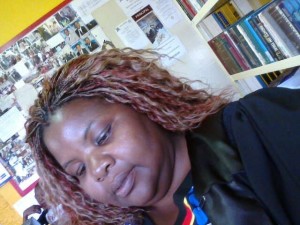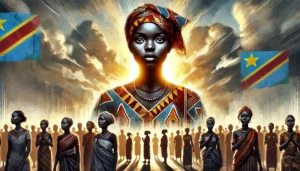What are the challenges that Zimbabwean women face?
You asked me this very interesting question. When l first read it a number of women came into my mind. First l thought of the women l have been doing projects with. These are mainly housewives, some of whom have been widowed by the AIDS scourge. Many others depend on their spouses for a living, whilst a few have working children who occasionally buy them groceries. To improve themselves, they have set up clubs in which they teach each other to perfect skills in baking, sewing, knitting, gardening and general home maintenance. Lately the clubs have begun internal lending schemes, which are not limited to money only but groceries and household appliances.
These women carry the burden of the communities on their shoulders. All organisations, governmental and non-governmental target them for implementation of various projects ranging from TB management,HIV and AIDS mitigation, even voter education or women’s programmes to be mobilisers. They are targets for various campaigns. For instance when the new constitution was being made, these women realized that section 23 in the old Zim constitution was discriminatory to them. Therefore they rallied with all the other women to have a new constitution that would be more women friendly.
Another group of Zimbabwean women l thought of was that of my daughter,who is 18, and her age mates. When we were having one of our talks, she exrepressed deep concern for her age mates who were dying early. She said that many of the young girls who were dying were on anti-retroviral therapy. The truth is that this generation, which is sexually highly active, has many who were infected at birth. It is a group of young women who are still trying to determine the path their lives should take. The group comprises the many university graduates who are not employed, and the many undergraduates who will soon join the unemployed. Many organisations tend to forget them because socially, they are not yet “women”,yet they cannot be regarded as “girls” either because of their age and many other variables.
I then reflected on yet another group of Zimbabwean Women…the formally employed ones, working mothers. This group seems to be more concerned with improving themselves academically so that they can get a salary hike, a promotion or better job. Unlike the first group l described for you, this group does not have much knowledge of community programs because they are always at work.
Yet another group that interests me is that of the directors and secretariats of civic organisations and their governmental counterparts. This is the group that sees itself as gender activists. They hold meetings, workshops and lobby politicians to support women friendly campaigns. They also sit and discuss the plight of women in Zimbabwe, especially the plight of the grassroots women.
Then another group came into my mind, women politicians…l just smiled, how we all wish they could be many because the more of them in higher offices, the better the representation and advancement of our “Agenda.”
From what l have written l amm sure you have realised that Zimbabwean women are not a homogenous group. They come from different walks of life and have different aspirations and achievements. What is clear though is the fact that each category faces almost similar challenges with varying levels due to a shared macro socio-political and economic environment.
Zimbabwe has made huge strides in equalising the genders but a lot still need to be done. The country is a signitory to CEDAW, The AFRICAN UNION and SADC Protocols on elimination of gender discrimination and the protection of the rights of women and children. It is adherence and lack of political will that presents challenges. The current national constitution has enshrined social rights of women and this is commendable. Implementation of supporting policies remains a challenge too.
Despite the fact that women make up 52 percent of the population only a few have access and ownership of the means of production across all industries: agrarian, manufacturing and mining. In agriculture for instance despite70 percent of women being actively involved in agriculture only 18 percent own land.
In education, the country has managed to provide basic education to everyone but has failed to retain the girls in secondary schools. Whilst affirmative action has been introduced in universities some young women still fail to enter due to prohibitive tuition fees and a lack of educational grants.
Maternal health also presents a big challenge in Zimbabwe. The local media has reported that it is estimated that at least 750 deaths per100 000 per year are recorded in connection with birth related complications. As a percentage this seems insignificant, yet if ten seventy five seater buses overturn and kill as many people it is a huge disaster. Coupled with this are the deaths due to cervical and breast cancer.
Reports on domestic violence are on the increase, and many of these are crimes of passion committed against women and at times their children too. Sexual abuse of women and girls in some institutions that are traditionally there to protect women like churches are also on the increase.
However despite their many challenges, Zimbabwean women are a resilient and hardworking lot.
Best regards
Kumbirayi Murisa
Harare, Zimbabwe




